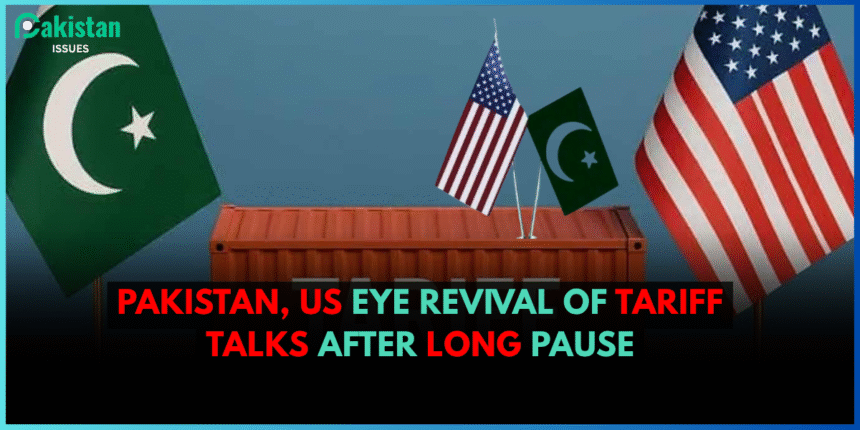ISLAMABAD: Pakistan and the United States are preparing to restart long-dormant talks on trade tariffs, as officials on both sides quietly signal readiness to move forward.
According to officials in Islamabad, discussions are expected to resume in the coming days, focusing on Pakistan’s key export sectors, including textiles and agriculture. These talks, which fall under the framework of the Trade and Investment Framework Agreement (TIFA), were on ice for nearly three years.
A senior commerce ministry official, speaking off the record, said the aim this time is “not just dialogue but results.”
Pakistan has long pushed for tariff relief on its textile exports — the country’s largest source of foreign revenue. While the US remains its top export destination, Pakistani goods continue to face higher duties compared to competitors. Officials say that even modest tariff concessions could help domestic industries under pressure.
“The window isn’t wide, but there’s movement,” the official said. “Both sides appear more open to working through the bottlenecks.”
Washington has yet to confirm exact dates for the meeting, though officials from the Office of the US Trade Representative have indicated that TIFA is “back in focus.”
The talks come at a time when Pakistan’s economy is feeling the weight of inflation, a depreciating rupee, and weak export numbers. Businesses in the country have long urged the government to secure better market access to remain competitive.
In a recent statement, the Pakistan Business Council noted that trade discussions with the US have to move beyond symbolism. “The potential is there — but our exporters need fewer restrictions and more breathing space.”
Analysts say reviving the economic track with Washington could help diversify Pakistan’s foreign relations, which have often been viewed through a security lens.
“This could mark a shift in how the two countries engage,” said a Lahore-based trade consultant. “It’s not flashy diplomacy, but it matters on the ground.”
For now, expectations are measured. But after years of drift, the fact that both governments are back at the table has been welcomed by stakeholders on both sides.










